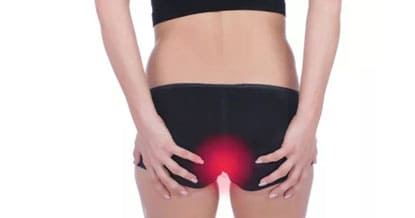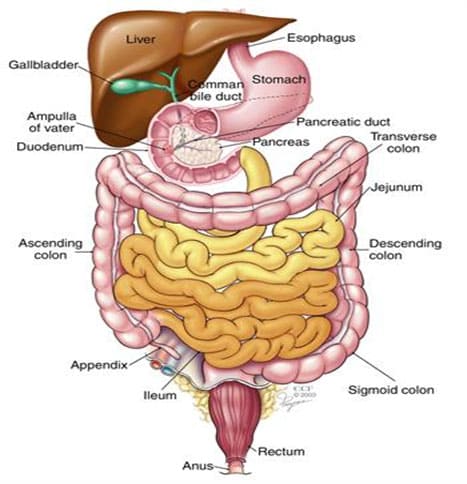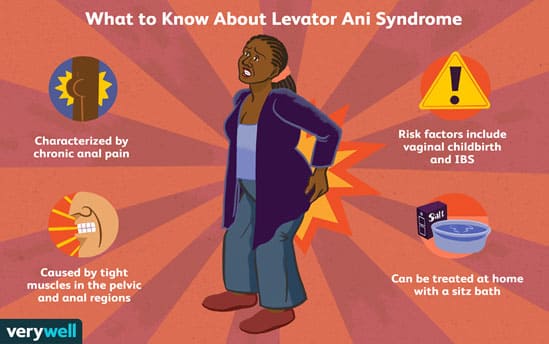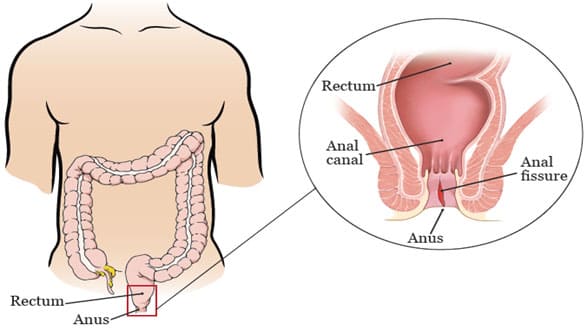Anal Pain
10
July
2021

What is Anal Pain?
Although anal pain is a common condition, it is not usually talked about. A lot of people suffer from it but choose to stay silent. “People may feel embarrassed to ask their doctor about anal pain, but it is a common symptom of many different medical conditions and is usually easily treated.” (Cleveland Clinic, 2019)
The pain happens in or around your anus or rectum which are very sensitive areas; they are known as the perianal region, and the pain around them is medically called “proctalgia”. The anus and the rectum are situated at the last part of the large intestine. The pain can be severe but that does not mean that the source of the pain is a serious health issue; it can be something really benign. The causes of anal pain may also lead to rectal bleeding. What can the source be? There are several reasons that result in this condition including anal fissures, anal abscess, inflammatory bowel disease, Levator ani syndrome, pelvic floor dysfunction, and some skin conditions along with many other reasons. Most of the time, the pain goes away quickly without treating it, but signs should never be ignored because there might be a serious underlying condition.
When your pain is not easing after a few days, you should check with your healthcare provider to get a proper treatment. However, persistent pain is not the only reason to seek immediate medical help; if you notice significant rectal bleeding, you should definitely contact your doctor. Sometimes you do not need a certain treatment, it can be healed through over-the-counter medications.
To diagnose anal pain, the doctor will ask questions about your medical health history, you might undergo physical and rectal examination, and, at times, endoscopy is needed.
Some anal care routines can help you prevent infections and diseases. “Many common causes of anal pain improve with simple self-care treatments, so you do not always need to see your doctor” (NHS, 2019). Given for example, some home preventions and treatments could me: using condom whenever you are engaging in an anal intercourse, soaking the anus in warm water, washing it gently without using soap, and never using random creams in the anal area unless they are prescribed by your doctor.

What are the causes of anal pain?
In order to confirm the reason behind your anal pain, you need to check with your doctor. You should not ignore it, because it can be a sign of a serious underlying health condition. Here are the most common causes of anal pain:
Anal abscess: it is a condition where a huge number of pus grow in and around the anus, and they usually develop because of infections. We can have several types of abscesses, but the most common one is perianal abscess. It has a warm sensation. It also appears in deep tissues, but it would be harder to find or notice them. Some risk factors include inflammatory bowel disease such as Crohn's disease or ulcerative colitis, pelvic inflammatory disease, and practicing anal sex. Anal abscess can result in a complication called “fistula”. To avoid this disease, wear a condom every time you have a sexual intercourse. As for kids, their diapers should be changed frequently. Some symptoms associated with this condition are pain during bowel movements, constant pain which gets worse when trying to sit down, and skin irritation around anus.
Anal fistula: “An anal fistula is a small tunnel that develops between the end of the bowel and the skin near the anus” (NHS, 2019). It usually happens as a result of an infection around the perianal region, which leads to a group of pus in the infected area. The small tunnel develops when the pus is drained away. Throbbing pain whenever you try to sit down, skin irritation around the sensitive area, rectal bleeding, and difficulty to control your bowel movements are all signs fir anal fistula. It is hard for you to see it by yourself, but you might find a small cavity near your anus, which is the end of the fistula. Even though this condition mostly happens after an anal abscess, there are some fewer common causes that can be its source, for instance, infection with tuberculosis (TB), human immunodeficiency virus HIV, hidradenitis suppurativa, Crohn's disease, and diverticulitis. If it is left untreated you will probably need a surgery, and the options include a fistulotomy or seton procedures.
Anal fissure:An anal fissure basically means that there is a tear in a tissue called mucosa. It may be caused when you are passing something hard during a bowel movement. When there is a fissure, you will probably experience pain and bleeding. This condition is more frequent in toddlers, but nothing can stop it from happening with adults too. There are many factors that can increase your likability to develop an anal fissure, such as, constipation, childbirth, anal intercourse, and age. If any sign of these is occurring, you should contact your doctor to get a proper treatment. In order to prevent anal fissure, you need to prevent constipation and diarrhea.
Hemorrhoids: a condition also known as piles and has two types. The first type is called internal hemorrhoids, which develops inside the rectum, and the second type is called external hemorrhoids and develops under the skin around the anus. It happens when a swollen vein appears in your lower rectum or in your anus. When you have external hemorrhoids, the symptoms may include bleeding, itching, irritation, pain, and discomfort. On the other hand, when you have internal hemorrhoids, you will experience painless bleeding when you pass a stool, and a hemorrhoid pushes through the anal opening which might cause you pain. Keep in mind that “As you age, your risk of hemorrhoids increases. That is because the tissues that support the veins in your rectum and anus can weaken and stretch. This can also happen when you're pregnant, because the baby's weight puts pressure on the anal region” (Mayo Clinic, 2021)
Inflammatory bowel disease: this disease signifies two conditions, Crohn’s disease, and ulcerative colitis – when you experience chronic inflammation of the gastrointestinal tract – the first one can occur anywhere in the gastrointestinal tract, but it affects more often parts of the small intestine before the colon. On the other side, the second disease affects the large intestine and the rectum. Common symptoms of inflammatory bowel disease are fatigue, abdominal pain, and persistent diarrhea.
Levator ani syndrome: “Levator ani syndrome is a type of nonrelaxing pelvic floor dysfunction. That means the pelvic floor muscles are too tight.” (Healthline, 2018). The pelvic floor works as a support to the rectum, bladder, and urethra. But if you are woman, it also supports your vagina and uterus. It is more likely to occur in women and is characterized with a constant dull and pain in your rectum due to spams in the Levator ani muscle.

Less common causes:
bone-related problem
bone-related problem
cancer of the anus or lower rectum
proctalgia fugax

How to prevent anal pain?
Anal pain can be prevented or at least decreased when you are taking care of yourself correctly.
-
Wash yourself gently with warm water and avoid using ordinary soap in the sensitive area.
-
Avoid using any cream around your anal area unless it is prescribed by your doctor.
-
Over-the-counter to relieve yourself from the pain if necessary.
Take sitz baths - “It can be done in a bathtub, or you can purchase a round, shallow washbasin which fits snugly over a standard toilet seat.” (Very Well Health, 2020) – if your anal pain is cause by an anal fissure or hemorrhoid because warm water will soothe you and treat the cause.
Always use a condom if you are engaging in an anal intercourse, if you do not do so, avoid inserting foreign objects in your rectum.
Drink plenty of fluids, but if you have any condition that impedes you to do so, you should check with your doctor first.
How to diagnose anal pain?
So, for the purpose if diagnosing the cause of anal pain, the doctor is going to ask you about your medical history to check for any diseases that might have caused this type of pain.
Then they will do a physical examination and possible rectal examination which consists of the doctor inserting his figure gently in your rectum to make sure there is no abnormalities.
The last step is endoscopy where the doctor uses a thin, flexible tube which has a camera at the end, to look at the lining of your rectum.
When to see a doctor?
Sometimes anal pain does not need to be treated by a healthcare provider so when does it become necessary to ask your doctor about your pain?
-
If you notice a lump
The pain is persisting for more than 4 days.
It is interfering with your mundane activities and tasks.
It keeps on recurring.
Rectal bleeding
References:
https://my.clevelandclinic.org/health/diseases/21020-anal-pain
https://www.nhs.uk/conditions/anal-pain/
https://www.nhs.uk/conditions/anal-fistula/
If you or anyone you know is suffering from pain, call us today on (469) 562 4188 to book an appointment with our expert doctors.